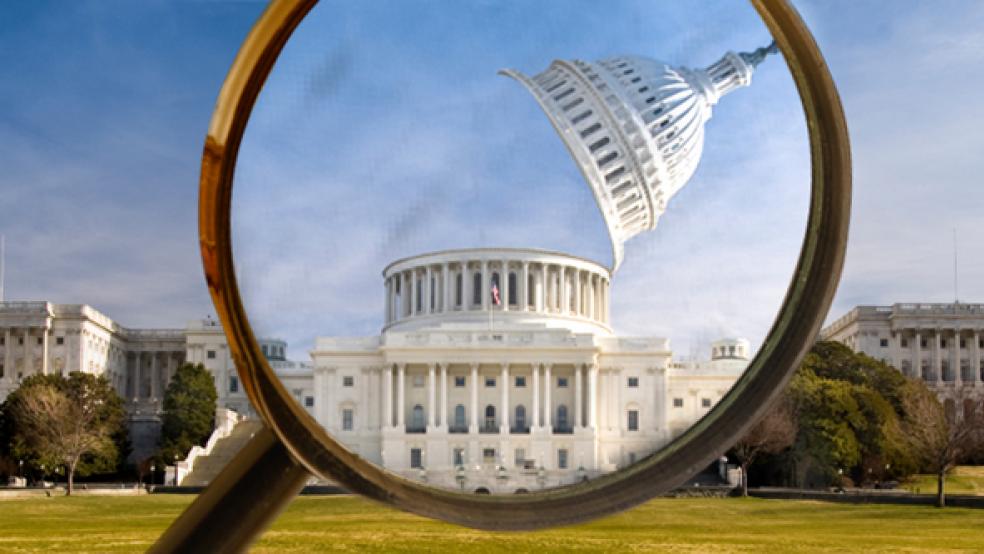Two of Washington’s most prominent and revered budget experts – former Congressional Budget Office Director Alice Rivlin and former Senate Budget Committee Chair Pete Domenici (R-NM) – just came out with a new package of proposed reforms for the creaky federal budget process, including one requirement that may shock some lawmakers.
It’s not their proposal for moving from an annual to a biennial process for writing new budget and appropriations legislation – an idea that has kicked around Capitol Hill and Washington think tanks in recent years. Nor is it their call to take a more holistic approach to controlling overall government spending by addressing all federal spending and revenues at the same time.
Related: End Beltway Brawls? Try Biennial Budgeting
No, the truly revolutionary idea these two budget maestros are advancing would be to force Congress do its work on time when it comes to passing a new budget resolution. Legislative dilly-dallying would no longer be tolerated. And if lawmakers failed to meet an April 15 deadline for completing work on a new budget plan, then, darn it, the House and Senate would simply have to stay in session and cancel all planned recesses until Congress reached a final agreement on a new budget resolution.
Wow. Imagine that. Congress has become so accustomed to kicking the can down the road in recent years – whether because of intractable partisan differences, sheer complacency or the unyielding demands of members to get away for vacations or campaigning – that the idea of the House and Senate having to stay in town until vital work is completed seems somewhat shocking, if not downright naïve.
Congress has routinely adjourned for weeks on end while leaving behind pressing matters such as the conduct of the war against ISIS, the expiration of the charter of the Import-Export Bank, the fate of the national highway and transportation program, looming debt crises -- you name it.
Arguably lawmakers’ most notorious perennial dereliction of duty over the decades has been their chaotic handling of the budget and appropriations process. More times than anyone can remember, the two parties have been incapable of agreeing on a new budget blueprint for the coming year and have had to adopt stopgap spending measures to keep the government operating. And of course the government has been forced to partially shut down three times since 1995, with the last crisis coming in late 2013.
Related: 5 Gimmicks in the GOP’s ‘Gimmick-Free’ Budget
The Congressional Budget Act of 1974 was a major reform designed to enhance legislative power by granting Congress an orderly process for deciding the government’s spending policies and how to pay for it. It helped usher in an era of bipartisanship and relative calm. But after more than 40 years, Rivlin and Domenici write in their new document for the Bipartisan Policy Center, “the process has broken down and urgently needs repair.”
The budget process, sadly, has turned into another political charade, with Republicans unable to pass spending bills to reflect their budget policies due to strong opposition from the Democrats and President Obama. Unless the two sides can reach agreement on a true bipartisan budget by the end of the summer, we will be headed for another bloody partisan confrontation this fall that will risk yet another government shutdown or a default on the federal debt.
“We are under no illusion that improving the federal budget process will transform the political and legislative atmosphere or erase current tensions,” Rivlin and Domenici wrote. “Reforming the budget process will not by itself eliminate partisan polarization, establish collegiality, or restore civil discourse. Difficult political decisions, such as controlling entitlement spending and balancing desired spending with adequate revenues, require more than new budget tools.”
Related: White House Claims Budget Victory, Blasts GOP in Review
“They require the political will to apply current available and new tools to achieve agreed-on fiscal goals,” they added. “Nevertheless, we believe improving the budget process can help.”





